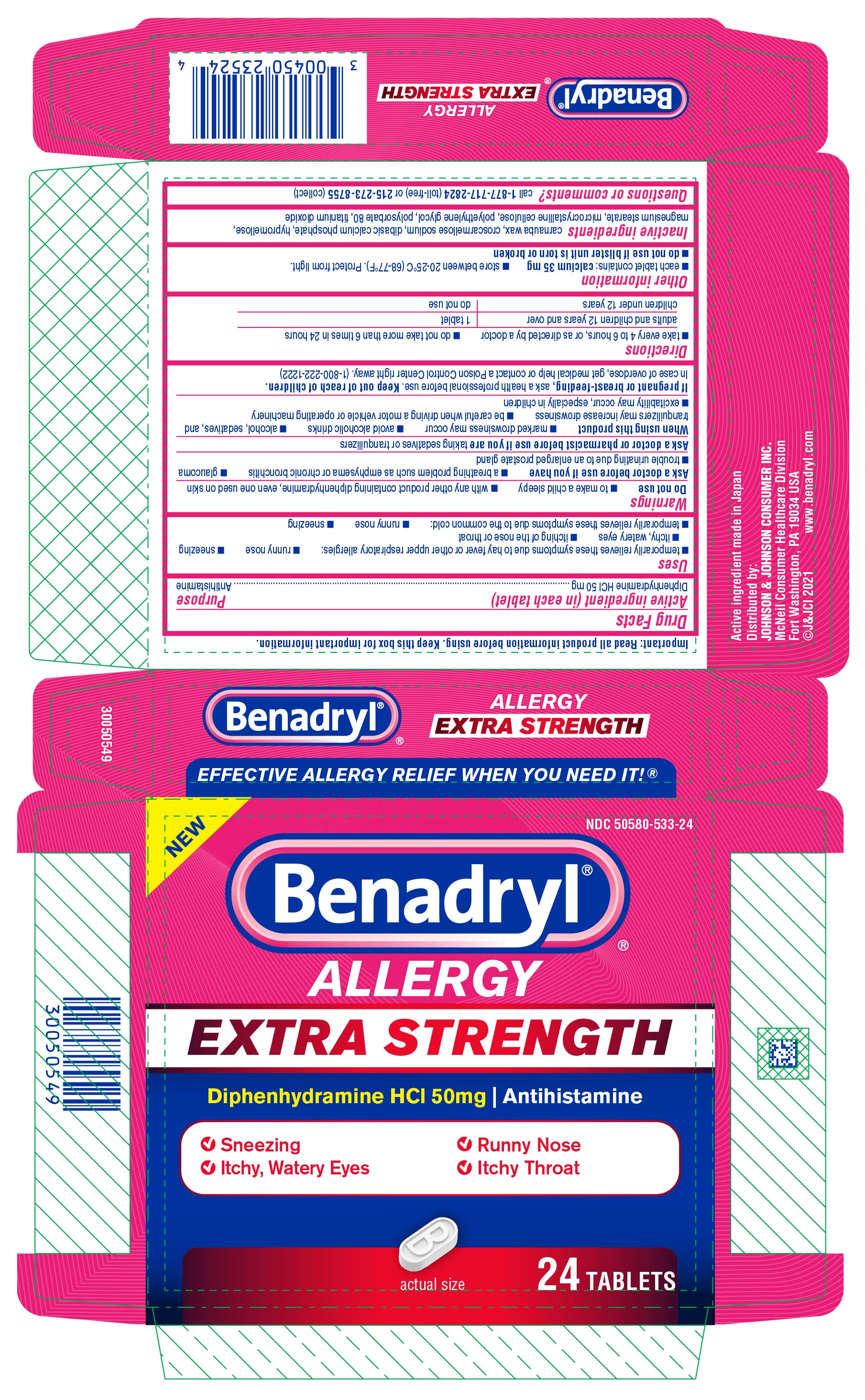Benadryl
Generic name: Acetaminophen, Diphenhydramine, and Phenylephrine Tablet
Brand names: Benadryl Allergy/Cold, Tylenol Allergy Multi-Symptom
Drug class: Upper respiratory combinations
Medically reviewed by A Ras MD.
What is Benadryl?
Benadryl is used to ease allergy signs. It is used to help motion sickness. Benadryl is also used to treat signs like Parkinson’s disease caused by other health problems
Description
Benadryl® Allergy contains the histamine-blocker diphenhydramine. This product relieves: runny nose; sneezing; itchy, watery eyes; itchy throat.
Ingredient
| Active ingredient (in each capsule) |
Purpose |
| Diphenhydramine HCl 25 mg | Antihistamine |
Inactive ingredients
candelilla wax, colloidal silicone dioxide, crospovidone, hypromellose, microcrystalline cellulose, polyethylene glycol, providone, pregelatinized starch, starch, stearic acid, titanium dioxide, and talc
Before taking Benadryl, tell your doctor:
- If you are allergic to Benadryl; any part of this medicine; or any other drugs, foods, or substances. Tell your doctor about the allergy and what signs you had.
- If you are breast-feeding or plan to breast-feed.
- If the patient is a premature baby or a newborn. Do not give this form of Benadryl to a premature baby or a newborn.
This is not a list of all drugs or health problems that interact with this medicine.
Tell your doctor and pharmacist about all of your drugs (prescription or OTC, natural products, vitamins) and health problems. You must check to make sure that it is safe for you to take Benadryl with all of your drugs and health problems. Do not start, stop, or change the dose of any drug without checking with your doctor.
What are some things I need to know or do while I take Benadryl?
- Tell all of your health care providers that you take Benadryl. This includes your doctors, nurses, pharmacists, and dentists.
- Do not take more than what your doctor told you to take. Taking more than you are told may raise your chance of very bad side effects.
- Do not use Benadryl for longer than you were told by your doctor.
- Avoid driving and doing other tasks or actions that call for you to be alert until you see how Benadryl affects you.
- Do not use with other products that have diphenhydramine.
- Avoid drinking alcohol while taking Benadryl.
- Talk with your doctor before you use other drugs and natural products that slow your actions.
- Different brands of Benadryl may be for use in different ages of children. Talk with the doctor before giving Benadryl to a child.
- Do not use to make a child sleepy. Talk with the doctor.
- If you are 60 or older, use Benadryl with care. You could have more side effects.
- Use with care in children. Talk with the doctor.
- Tell your doctor if you are pregnant or plan on getting pregnant. You will need to talk about the benefits and risks of using Benadryl while you are pregnant.
How is Benadryl best taken?
Use Benadryl as ordered by your doctor. Read all information given to you. Follow all instructions closely.
- It is given as a shot into a muscle or vein.
- This medicine may cause tissue damage if it is given into the skin or into the fatty part under the skin. Talk with the doctor.
What do I do if I miss a dose?
- Call your doctor to find out what to do.
What are the side effects of Benadryl that I need to call my doctor about immediately?
WARNING/CAUTION: Even though it may be rare, some people may have very bad and sometimes deadly side effects when taking a drug. Tell your doctor or get medical help right away if you have any of the following signs or symptoms that may be related to a very bad side effect:
- Signs of an allergic reaction, like rash; hives; itching; red, swollen, blistered, or peeling skin with or without fever; wheezing; tightness in the chest or throat; trouble breathing, swallowing, or talking; unusual hoarseness; or swelling of the mouth, face, lips, tongue, or throat.
- Very bad dizziness or passing out.
- Change in balance.
- Feeling less alert.
What are some other side effects of Benadryl?
All drugs may cause side effects. However, many people have no side effects or only have minor side effects. Call your doctor or get medical help if any of these side effects or any other side effects bother you or do not go away:
- Feeling sleepy.
- Dizziness.
- Thickening of mucus in nose or throat.
- Feeling nervous and excitable.
- Upset stomach or throwing up.
These are not all of the side effects that may occur. If you have questions about side effects, call your doctor. Call your doctor for medical advice about side effects.
You may report side effects to the FDA at 1-800-332-1088. You may also report side effects at https://www.fda.gov/medwatch.
If overdose is suspected:
If you think there has been an overdose, call your poison control center or get medical care right away. Be ready to tell or show what was taken, how much, and when it happened.
Drug Interactions
A total of 412 medications are known to interact with Benadryl. Use the Interactions Checker Tool.
Common Interactions Checks
- albuterol
- gabapentin
- ibuprofen
- levothyroxine
- lisinopril
- melatonin
- omeprazole
- prednisone
- trazodone
- Tylenol
- Vitamin D3
- Zyrtec
How do I store and/or throw out Benadryl?
- If you need to store Benadryl at home, talk with your doctor, nurse, or pharmacist about how to store it.
Label
PRINCIPAL DISPLAY PANEL
- NEW NDC 50580-533-24
- Benadryl ®
- ALLERGY
- EXTRA STRENGTH
- Diphenhydramine HCl 50mg | Antihistamine
- ✓ Sneezing ✓ Runny Nose✓ Itchy, Watery Eyes ✓ Itchy Throat
- actual size
- 24 TABLETS

